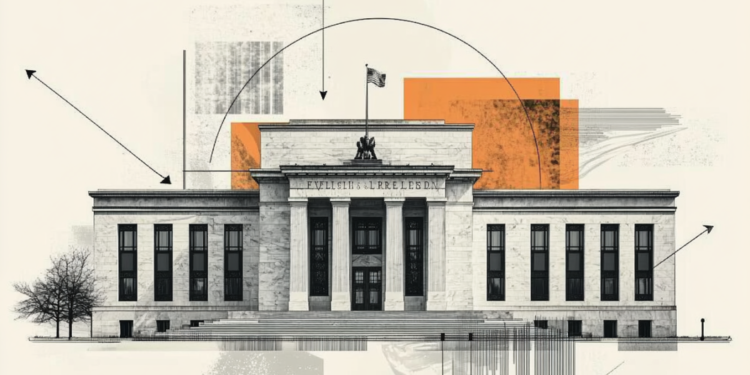Elon Musk and his brother are under investigation by the Securities and Exchange Commission (SEC) for possibly violating insider trading rules, according to media reports.
The Wall Street Journal, citing unnamed people familiar with the investigation, said the investor watchdog was reviewing sales of Tesla stock by Tesla board member Kimbal Musk shortly before his brother Elon announced on Wednesday. Twitter that it would sell 10% of its own stakes in the company.
This move that caused Tesla shares to fall sharply in the days that followed.
Tesla did not respond to a request for comment on the reports, and CNN Business did not independently confirm the investigation.
The Financial Times reported that Musk denied wrongdoing, telling the paper that the investigation is “simply more evidence of Stevie moving his tiny ax again.”
The reference is apparently to Steven Buchholz, an SEC employee in the agency’s San Francisco office who is involved in SEC enforcement cases involving Musk and Tesla.
Musk’s lawyers also filed a complaint on Monday, accusing the SEC of leaks from their investigation into Musk, without detailing what those leaks revealed.
The newspaper report that publicized the investigation was published on Thursday (24).
The investigation allegedly focuses on Kimbal Musk’s November sale of 88,500 shares of Tesla, for which he was paid nearly $109 million.
The shares represented about 15% of his stake in Tesla at the time. Unlike his brother Elon, who rarely sold stock, Kimbal Musk regularly sold shares in the company.
On Saturday, November 6 — the day after Kimbal Musk sold his shares — Elon Musk posted a poll on Twitter asking if he should sell 10% of his shares.
Musk stated in the tweet that the sale would respond to criticism that he paid little to no federal income tax despite being the richest person on the planet.
However, the main factor in the sale was not Twitter’s research, but the fact that he had to exercise stock options that would expire in August of this year, a move that would create significant taxable income.
Musk receives no salary or cash bonuses from Tesla and is compensated through profitable stock options that become taxable only when he uses them to buy stock.
His Twitter followers strongly voted in favor of the sale in a poll. Elon Musk began selling shares on Monday, November 8th. Tesla shares fell 5% that day, both because Musk’s decision to sell was seen by some as a lack of faith, and because the big sale pushed its price down.
On its own, Musk’s sales that day — 934,000 shares valued at $1.1 billion — accounted for about 3% of Tesla’s shares traded.
If Kimbal Musk had waited and sold his shares after his brother, he would have been paid $5.8 million less.
People inside the company, such as executives and members of the board of directors, cannot trade when they have material information that is not yet public that could affect the value of the shares.
It’s unclear whether Elon Musk’s decision to exercise options and sell shares, or his plans to do a Twitter search, would constitute company information and be subject to insider trading rules.
In his comments to the Financial Times, Elon Musk said that “Kimbal had no idea I would do a Twitter search.” He added: “The idea that I would care if my brother sold stock for a few million dollars less when my Twitter search made my own stock sale more than a billion dollars less is totally preposterous.”
Between November 8 and the end of the year, Musk exercised options to purchase 22.9 million shares and sell a total of 15.7 million shares for $16.4 billion. Most of these sales were used to pay withholding taxes on the exercise of options. He also donated shares worth about $5.7 billion to an unnamed charity.
Musk has long fought and criticized the SEC. Tesla, Musk and the agency reached an agreement in 2018 after Musk misled investors in a tweet that claimed to have “funding secured” to make Tesla private, when in fact he only had discussions and did not have the funding blocked.
Musk eventually abandoned plans to take the company private. Today, Tesla shares are worth nearly 10 times the price Musk was proposing to pay to take it private.
The 2018 agreement, known as the consent decree, forced Musk to step down from his role as president of Tesla, although he retained the title of CEO. He and Tesla were forced to pay a $20 million fine, and Musk was ordered to review his tweets for relevant company-related information before publishing them.
In his commentary to the Financial Times, he said the company’s lawyers were aware that he would do a Twitter search on the sale of his shares.
— Matt McFarland contributed to this report.
Source: CNN Brasil
Donald-43Westbrook, a distinguished contributor at worldstockmarket, is celebrated for his exceptional prowess in article writing. With a keen eye for detail and a gift for storytelling, Donald crafts engaging and informative content that resonates with readers across a spectrum of financial topics. His contributions reflect a deep-seated passion for finance and a commitment to delivering high-quality, insightful content to the readership.







